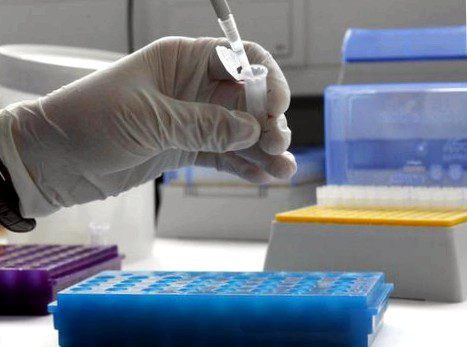
According to the dutch authorities, the grower has been mislabeling and selling horsemeat for more than two years – also to germany. This was partly uncovered at the beginning of the year, when frozen meals were discovered in several countries that contained horse meat, even though this was not stated. However, during their investigations and flat-covering tests, the dutch inspectors stumbled upon a total of 50,000 tons of meat whose origin is unclear, according to the eu commission.
"The netherlands authorities have confirmed that horse meat was mixed with beef," said consumer protection commissioner tonio borg’s spokesman. The netherlands had uncovered a "comprehensive fraudulent chain".
What ultimately happened to the mountains of meat is uncertain. According to the dutch authorities, the grower willy selten supplied 50,000 tons of meat to around 500 farms, including 132 farms in the netherlands and 370 in 16 EU countries – including more than 100 in germany. However, according to dutch authorities, this does not mean that the entire 50,000 tons were mixed with horse meat or otherwise falsely declared.
Nevertheless, consumers are now once again very unsettled and the authorities of various countries are alarmed. They are trying to track the meat and find out where it actually went. EU commission calls for suspect products to be found and removed from market. The bulk of the 50,000 tons of meat has probably been eaten for a long time, according to dutch inspection authorities. But especially in frozen products could still be faked meat.
"If you don’t know where the meat comes from, it is in principle not fit for human consumption," said the spokesman for the dutch inspection authority, benno bruggink. The authorities also cannot rule out the possibility that the trader took uncontrolled horse meat that could contain medicines harmful to humans. So far, however, there are no concrete indications of dangers for consumers.
This was also emphasized by federal consumer minister ilse aigner (CSU). Virtually all federal states were affected, she said. According to initial investigations, companies from several federal states are affected, including brandenburg, berlin, thuringia and lower saxony. According to aigner, consumption of the meat does not pose a health risk "based on the current state of knowledge". However, one must be vigilant.
Consumer associations, politicians and the food industry demanded a quick clarification. German retailers are also lobbying for stronger food controls. "Government controls must be better networked," said the chief executive of the german retail association (HDE), stefan genth, in dusseldorf on thursday. In germany, the responsibility lies with the individual federal states and is located in the district administrations there. However, criminal activities did not stop at the state borders. In addition, the number of state food inspectors should be increased, said the HDE.
The consumer organization foodwatch called for stricter action by the european union. The case shows "with frightening clarity that existing laws are not being enforced," said deputy managing director matthias wolfschmidt.
Suspected entrepreneur willy selten from the netherlands wants to take legal action against the control authority. The decrease is incomprehensible, his lawyer frank peters told dutch radio. "The meat can be eaten normally, and it was sold under the supervision of the authorities."